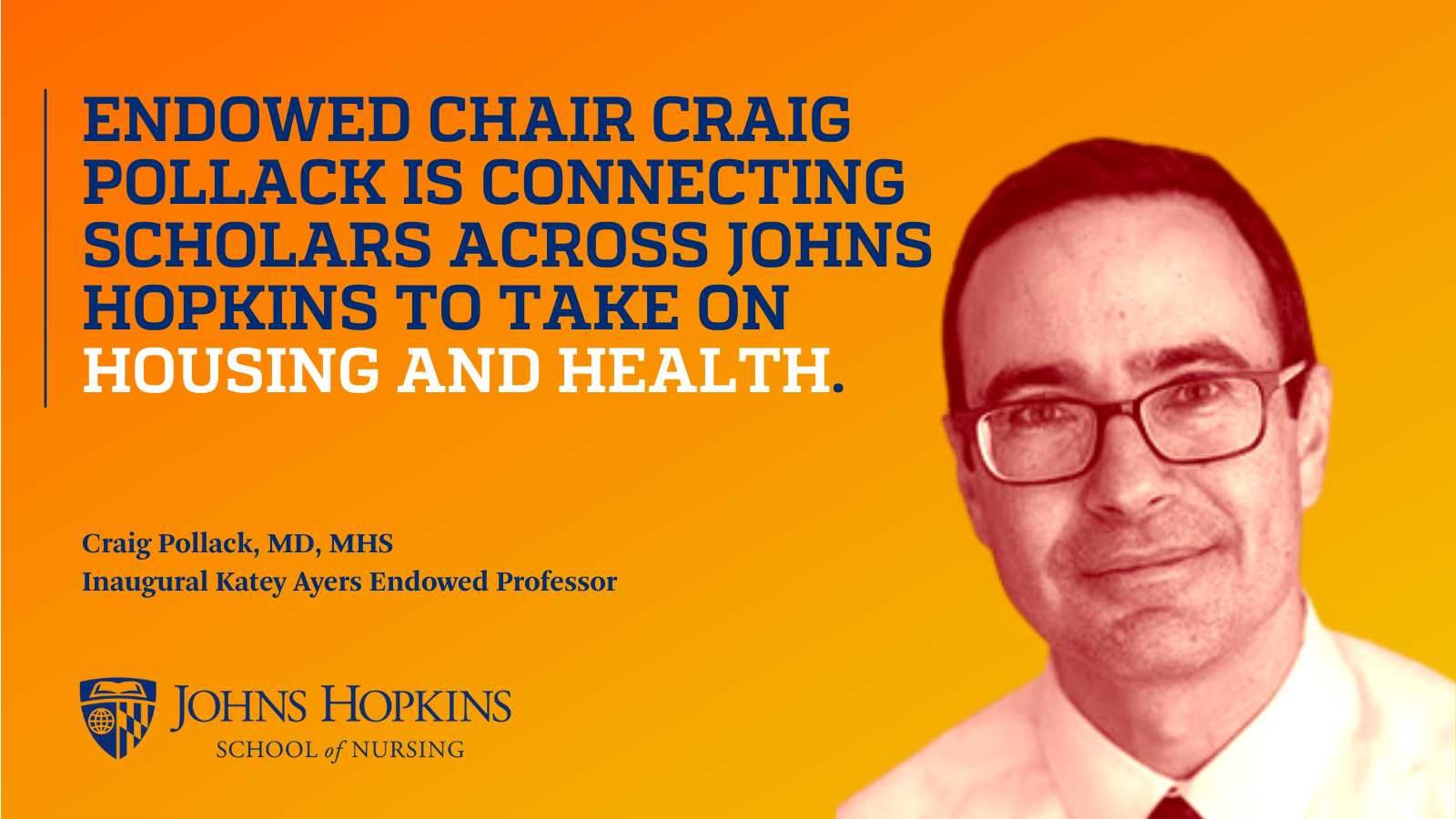Where do climate change and health care meet?
“In every area of practice,” says Cecília Tomori, PhD, MA.
Climate change is the number one threat to public health in the 21st century. It’s a critical social determinant of health; for example health care after a natural disaster or lung conditions in settings with poor air quality. Or even housing in our local and social environments, for example, we know that people living in high-poverty neighborhoods experience worse health outcomes. Nurses see the impact first-hand, locally and globally.
Yet nurses are uniquely positioned to become ambassadors of information about healthy environments. That’s why the Johns Hopkins School of Nursing has joined the Nurses Climate Challenge, which seeks to mobilize nurses to educate health professionals about the health impacts of climate change. Read on to learn about climate change from Johns Hopkins researchers.
Craig Pollack, MD, MHS

“The lack of safe and affordable housing creates a health crisis with a broad range of harmful consequences,” says Craig Pollack, MD, MHS.
“There are so many people working on housing as a foundation for health across Johns Hopkins—from different perspectives—that we have a lot of advantages and synergies we can bring together and build on.”
Nancy Reynolds, PhD, MS, RN, FAAN, C-NP
Climate change is already damaging human health and will have a greater impact in the future. It’s impacts are most detrimental to susceptible populations including children and pregnant women, people with low income, the elderly, people with disabilities and chronic illnesses. Nurses, explore the Alliance of Nurses for Healthy Environments, a national group that focuses on environmental factors that impact human health, who are working to increase awareness and provide education to nurses.
Alliance of Nurses for Healthy Environments
Cecília Tomori, PhD, MA
Every area of practice is touched by climate change even more than you realize. For example, my own research specialty, maternal and child health, is one of the most profound areas where climate change can make an enormous difference. In areas where there is no electricity and where water may not be available or is contaminated, lactation makes a huge difference, even more so than under normal circumstances.
Kelli DePriest, PhD, RN
Climate change is the planet’s number one public health threat of the 21st century. Our Standards of Professional Nursing Practice from the American Nurses Association require that we are stewards of our environment. We are a profession who understands that optimal health requires good nutrition, adequate mobility, a healthy environment, and social support; we are perfectly positioned to lead the movement to address climate change. It doesn’t hurt that nurses are also the most trusted profession.
There is no better day to take action against climate change than today. Happy Earth Day!
Catherine Ling, PhD, MSN, RN, CNE, FAANP, FNP-BC, FAAN
Conversely, unhealthy environments create or exacerbate disease and illness. We are seeing this play out locally and globally. A great example is accessibility of a safe water supply. Within the United States, we have seen the acute and chronic health impact of neglected infrastructure for water delivery in Flint, MI, the instability of water purification and delivery in Houston, TX and divergence of water resources across the southwest. Globally, in areas like Guatemala, water is seasonally accessible in areas where storage and purification are limited or nonexistent. In all areas, populations with the most vulnerability bear the greatest share of the illness burden.
Miki Goodwin, PhD, RN, PHN, CNE, NEA-BC, FAAN
As we celebrate nursing and all that it is, we cannot ignore the impact of climate change, for the sake of our patients and our profession. As the most trusted profession, we can show the world what caring about climate change looks like.
